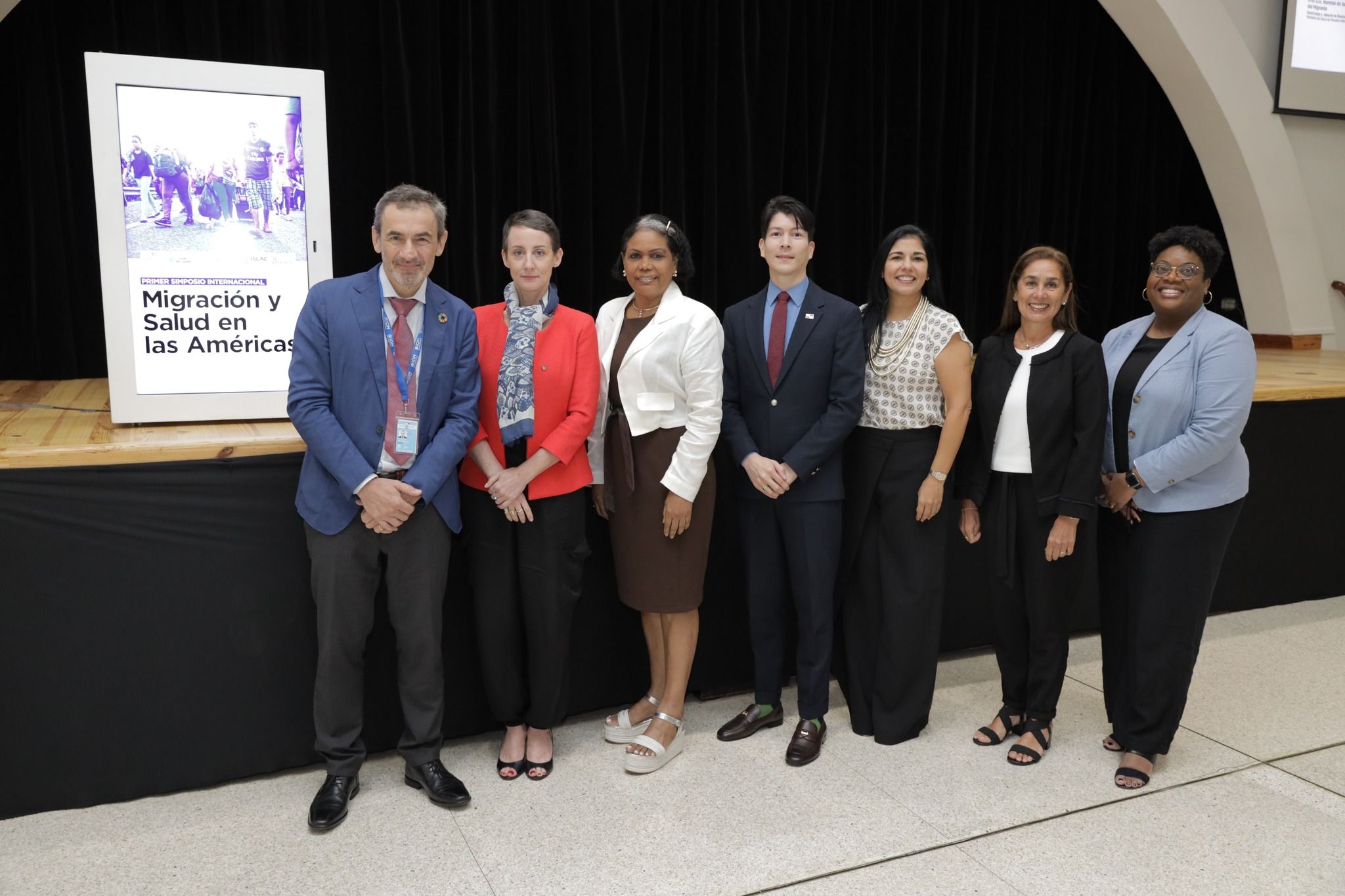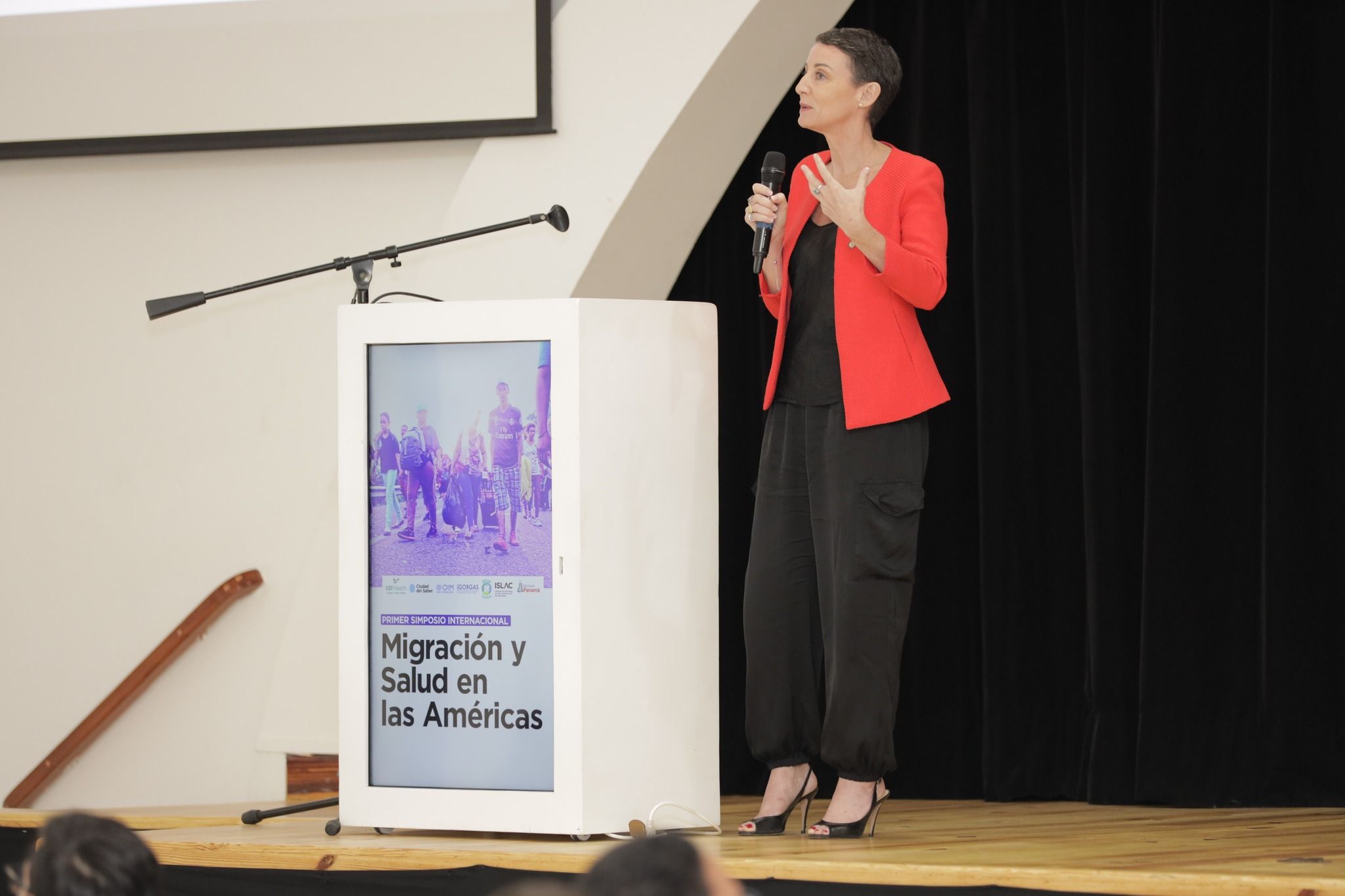Migration and Health in the Americas
Published 2 Enero 2025
The First International Symposium on Migration and Health in the Americas brought together experts, academics, and policymakers to address the multifaceted challenges of migration in the region. This event, organized by the City of Knowledge Foundation, the University of South Florida School of Public Health program in Panama, and the International Organization for Migration (IOM), with support from the Pan American Health Organization (PAHO), the Centers for Disease Control and Prevention (CDC), the Gorgas Memorial Institute for Health Studies (ICGES), Science in Panama, and the USF Institute for the Study of Latin America and the Caribbean (ISLAC), focused on three key areas: the migration picture in Panama, the impact of Darien migration, and the migratory health context.
The sessions explored dominant narratives and influencing factors in migration policies and social integration. Experts, along with leaders of migration organizations, offered valuable perspectives on how to improve the representation and understanding of migration.
In addition, recent studies were presented documenting how the migratory flow through this area has affected local species and their habitats. Researchers discussed the challenges and opportunities to mitigate these impacts, seeking to balance human needs with environmental preservation.
To conclude, special guests Jean Francois Aguilera, regional technical advisor on Migration and Health of the IOM Regional Office, Dr. Ana Rivière Cinnamond, representative of PAHO/WHO in Panama, Dr. Yoran Grant-Greene, director of the regional office for Central America and the Caribbean of the CDC and Beatriz Padilla, from ISLAC-USF, held a space for reflection where they shared recent data and best practices to improve health care for migrants, considering both the physical and mental well-being of these people.
“We must identify the most vulnerable communities and recognize who needs our support and services, including mental health. Without forgetting to also take care of the caregivers for everything they see,” Aguilera said.
Dr. Cinnamond, for her part, raised the importance of identifying the origin: “When we talk about migration and the role that entities can play, it is important to identify with the countries of origin what the causes are; migration will continue to exist if there are dangerous situations. Until we can resolve the main causes of migration, it will be almost impossible to limit it.”
The event aimed not only to deepen understanding of current challenges, but also to foster innovative and sustainable solutions for managing migration and its implications for health and the environment.




